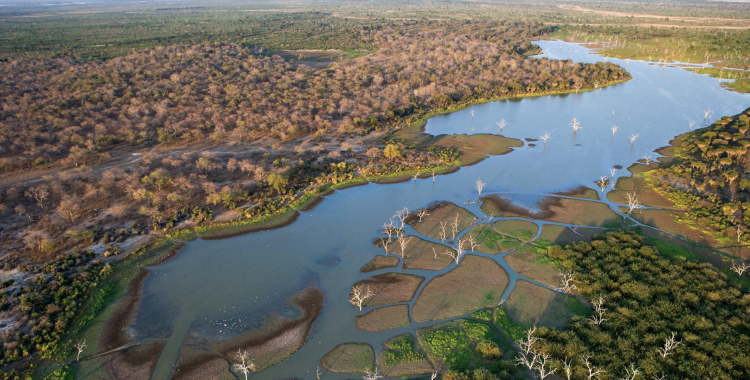In the gigantic natural area between the Okavango and Zambezi rivers, shared by five countries - Angola, Botswana, Namibia, Zambia and Zimbabwe - an international project is being developed that combines tourism and environmental conservation, as the general director of the Polo explained to Lusa Okavango Basin Tourism Development Board (PDTBO) and focal point of the KAZA cross-border project.
Angola, with 90 thousand square meters, comprising four municipalities (Cuito Cuanavale, Dirico, Rivungo and Mavinga), holds the third largest share, but is perhaps the country that has least taken advantage of the tourism potential in this region of the province of Cuando Cubango, where almost everything remains to be done.
"We still have some gaps", admits Gime Sebastião, responsible for the Kavango Zambezi Transfrontier Conservation Area (ATFC KAZA), which brings together five countries and 36 national parks, covering a total area of 520 thousand square kilometers.
The treaty that established KAZA was signed 12 years ago, in Luanda, but Angola has not yet ratified the document, which creates difficulties in accessing international funds and attracting investment.
"We are always waiting for this step to be taken", Gime Sebastião tells Lusa.
This will be an important step towards the development of tourism in Okavango, the common denominator where the waters of the Cuando and Cubango rivers cross, in the province to which they gave their name, one of the most extensive and remote in the country, occupying an area twice the size of Portugal, with faunal diversity and untouched landscapes.
According to the PDTBO official, access and "normalization of borders" are obstacles to development, hindering the movement of tourists in that region that borders Namibia, to the south, and Zambia, to the east.
"The border posts in that area are still administratively closed", says Gime Sebastião, hoping that the situation will be over by the beginning of next year.
He recalled, on the other hand, that the region was strongly affected by the armed conflict that lasted around 30 years in Angola, opposing government forces to Jonas Savimbi's UNITA, leading wildlife to disperse and practically abandon their 'habitat' during the civil war.
"Right now, with the security situation and the cleanup of the mines, the animals are returning", he guarantees.
Currently, it is possible to travel "safely" in around 50 percent of the territory of Cuando Cubango, but the rest needs to be demined to guarantee the safety and movement of tourists, as much of the region is traveled on trails, with demining actions being carried out by national authorities and partners such as the NGO Halo Trust.
But there is also a lack of tour operators and guides who develop activities and itineraries and hotel infrastructure to welcome visitors.
"To begin with", the Government will try to captivate fans of the so-called "nature tourism", promising the creation of campsites soon, "as soon as the cross-border posts are made official".
Gime Sebastião hopes to have some tour operators from neighboring countries, such as Namibia, next year.
Among the attractions, in addition to wild fauna, which highlights the presence of elephants, buffaloes, giraffes and sables, the director of PDTBO points to sport fishing as a complementary tourist offer, estimating that, in 2024, around 10 to 15 thousand tourists will come and experience the region.
The official also says that the authorities are attentive to local communities, highlighting that in the Okavango hub, after the installation of hotel units planned in the first phase, 1500 jobs are expected to be created, providing the development of community tourism.
"They are the best guides, they are the ones who will show what the tourist is looking for, the animals, the observation areas", he explains, referring to local ethnic groups such as the Nganguela and the Khoisan.
As for the oil exploration that is already being talked about in the Okavango, he says that nothing has been decided.
"There is talk of this, the neighboring country, Namibia, already has prospecting underway, but not yet in our component. These are actions that fundamentally depend on the government, I am not aware of projects of this nature that have been authorized (...) At the moment, we have nothing", he assures, reinforcing that the focus is tourism.
"At this moment, tourists on the Namibian side have seen everything, in Botswana they have seen everything, in Zambia they have seen everything, now Angola is closed and they are putting pressure on us to open the doors" highlights Gime Sebastião.
Last week, President João Lourenço signed an order authorizing 19 million dollars for the construction of a new international airport in Mavinga, highlighting the international importance of the source of the Okavango Delta and the fact that it is "a strategic area of investment interest for the development of tourism in the country".







